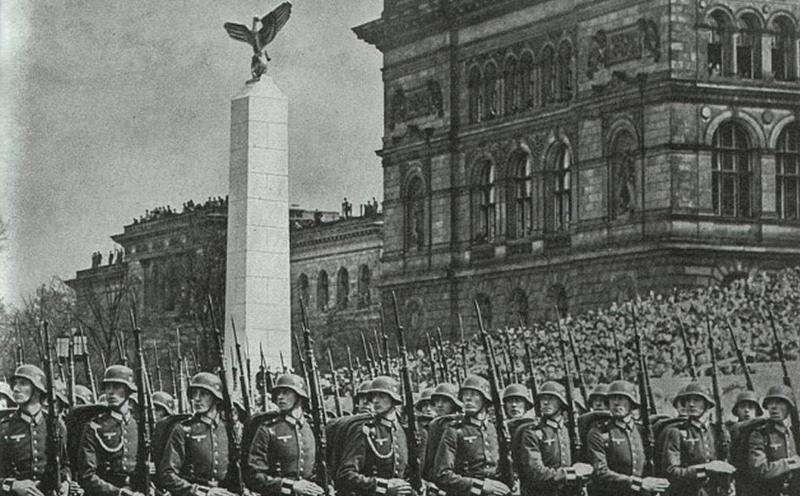In the spring of 1945, the Soviets, who had completely crushed the German offensive, assembled three fronts, totaling 2.6 million troops, and began to attack the German capital Berlin. The Nazis, under the leadership of the war maniac Hitler, decided to implement a scorched-earth policy in Berlin, fighting for every inch of land and fighting a final decisive battle with the Soviet Union.

Hitler, who was severely depleted, mobilized hundreds of thousands of untrained militiamen to fight for his last madness, and it turned out that God did not take care of him this time. On April 30, 1945, the Soviets completely captured the German capital Berlin, and Hitler committed suicide in despair. At 00:30 on May 9, the German government signed the Unconditional Instrument of Surrender in Berlin, which took effect immediately, ending the Soviet-German War and marking the end of World War II in the European theater.
It is worth mentioning that before the Soviet army attacked Berlin, the German army had a group of hundreds of thousands of troops in the Baltic Sea region. Originally belonging to Army Group North, this army was renamed "Courland Army Group" according to the area of operation, and it was a very strong fighting force composed of veterans. However, after the crisis in Berlin, Hitler did not recall this force, but still let them stay in place.
The first is because of the cut-off of traffic. As early as 1944, in order to eat this 900,000-strong Army Group North, the Soviet army mobilized 900,000 troops and launched the "Battle of Courland", although it ended in the victory of the German army, but this German army stationed in the Baltic Sea region was also cut off by the Soviet army from the German headquarters and could not return home from land to participate in the war.
The second point was Hitler's distrust of the Navy. Although the German Admiral Dönitz made it clear that he could transport these elite German troops home by sea, and the German Navy had earlier successful cases (the famous "Operation Hannibal", in which the Germans transferred more than 800,000 refugees and more than 300,000 soldiers through the navy in 15 weeks), Hitler believed that instead of taking the risk of transporting troops, it would be better to leave these soldiers in the Baltic Sea and contain some Soviet troops.
The third point is Hitler's courage to break the boat. In the battles of Moscow and Stalingrad in the middle of the Soviet-German war, the Soviets won the battle with their tenacious will, which gave Hitler another inspiration while the German army continued to retreat. In Hitler's view, the Soviets could stand firm and clear the wilderness, desperately sit in the lonely city, and fight back, so the powerful German Army could also do it when defending "Moscow" and "Stalingrad" in Germany. As long as the Germans could keep the Soviets out of Berlin, the remaining Army Group North could be a sharp knife to stab the Soviets in the back. In this way, a million Soviet troops would be defeated by the enemy in the belly and back, and the German army would be able to get the opportunity to counterattack on the eastern front again, completely revitalizing the overall situation.
Of course, the wheel of history was not diverted by Hitler's personal will, and the Nazis who stuck to Berlin and expected a Jedi counterattack did not wait for the same miracle as the Soviets, and this great armageddon still ended in the victory of the Soviet Union.
If Hitler had brought the elite Northern Army back home by sea, would it have brought about the Jedi counterattack he had expected? Unfortunately, history does not have ifs.